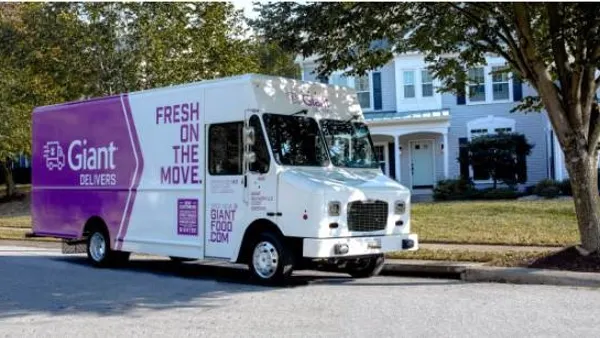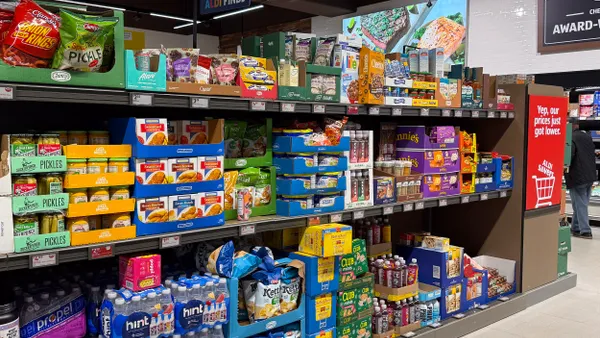Dive Brief:
- The National Labor Relations Board’s proposed rule that would update the joint employer standard is receiving pushback from the Food Industry Association and National Grocers Association.
- The trade groups are arguing the proposed rule expands the concept of a joint-employer relationship, making that standard applicable to most business-to-business relationships involving employees.
- FMI claims the proposed rule could create staffing problems for grocers, while the NGA says it would put small grocers at risk of increased litigation and higher labor costs
Dive Insight:
The NLRB’s proposed rule would make two or more employers joint employers if they “share or codetermine those matters governing employees' essential terms and conditions of employment.” The proposed rule would update the current joint-employer standard that was issued in 2020.
The trade groups’ opposition points to the industry’s traditionally low margins and the reliance grocers, especially independent and small operators, have on partnerships with other companies to supply workers for different tasks.
“FMI members have unique needs in meeting staffing requirements in stores, distribution facilities, and divisions throughout their business operations,” Christine Pollack, FMI’s vice president of government relations, wrote in a letter to the NLRB.
The letter continued: “In addition to hiring direct employees, these businesses fulfill operational needs through vendors, contracts, and temporary staffing relationships. Utilizing the expertise and specialty skills of these separate businesses should not constitute a joint employer status.”
The proposed rule’s expansion of what a joint employer relationship is would now include health and safety standards, hours of work and scheduling — aspects that grocers and their partners often have to work on together, Pollack noted.
“Complying with health and safety standards and laws and coordinating hours of work and scheduling between businesses along the supply chain should not be considered essential terms and conditions of a joint employer standard,” Pollack said in the letter.
NGA claims the proposed rulemaking needs clarification with specific provisions to more clearly define joint-employer relationships in a way that doesn’t create a de facto “employer” status for grocers when they work with other businesses regarding labor.
NGA also highlighted in its comments that grocery co-operatives would be adversely affected by the rule, given their business model: “Because cooperatives supply various shared services related to labor, human resources, and brand preservation, it would face the impossible evidentiary burden of proving that the individual member acts independently, and that the cooperative exercises no indirect or retained control over such matters.”
NGA said it wants the NLRB to clarify undefined terms in the proposed rule, work with the trade group, provide safe harbor to independent grocers that contract within those components and provide a unique safe harbor for the contracts related to co-ops.
Employers may face more liability with the proposed rule, the Society for Human Resource Management noted in a post. The proposed rule’s current phrasing would likely ignite more consolidation within the grocery industry as a way to avoid joint-employer status, NGA claimed.











